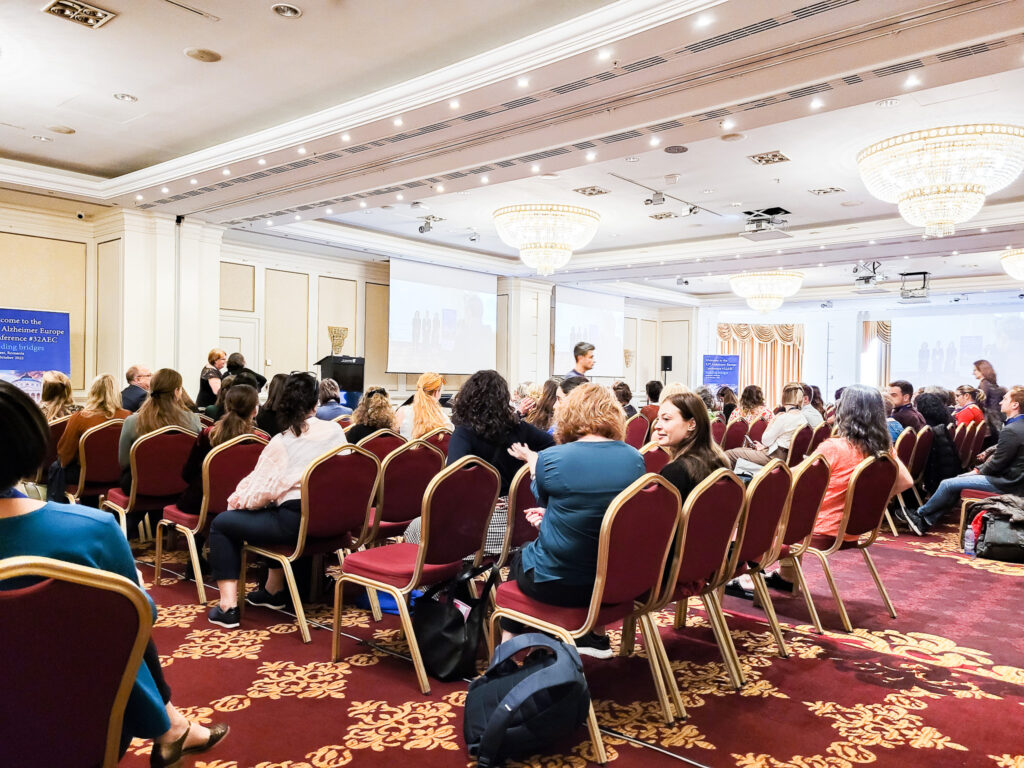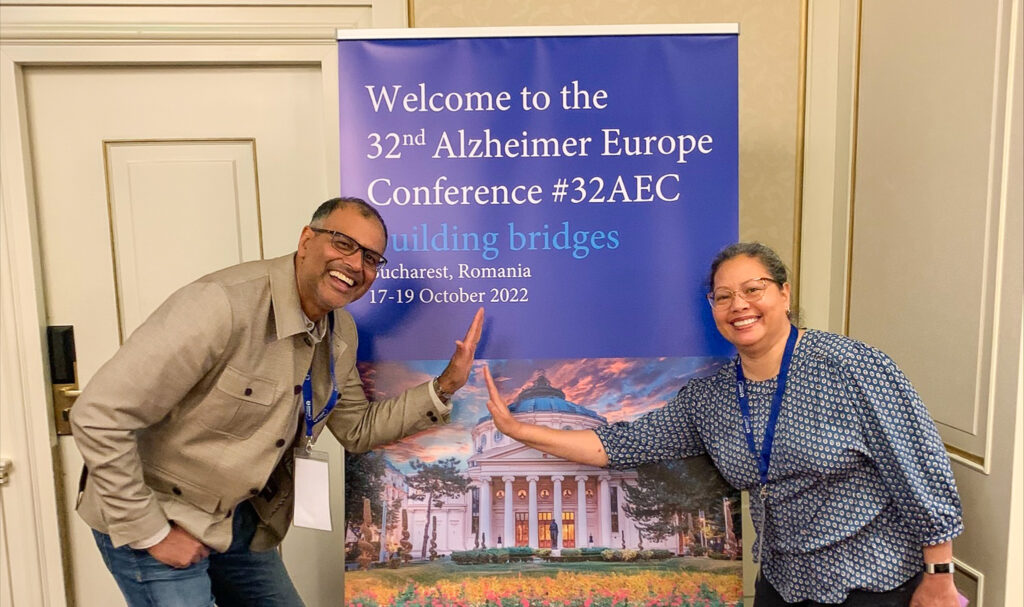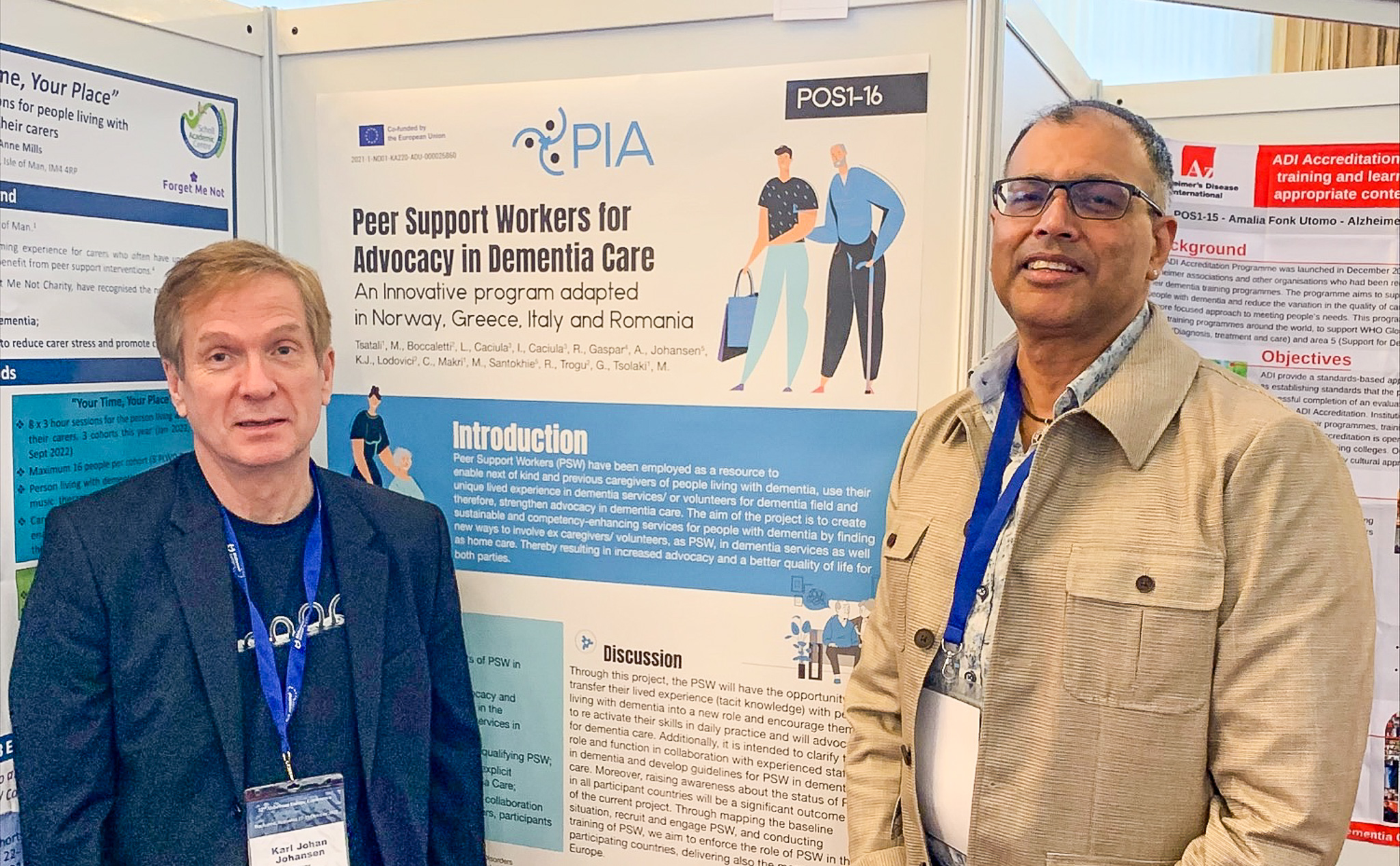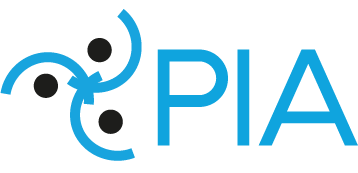In October, 9 representatives of the Erasmus+ PIA project went to Romania and the Alzheimer Europe Conference. There they got to present the project on a poster and were met with a lot of curiosity and interest. Especially persons with dementia and their relatives wanted to know more about our approach to dementia care. The fact that you can be a resource based solely on your personal experience with dementia seemed to be appealing to this group.
Peer Support Workers as an Innovative force in Advocacy in dementia care (PIA) is an Erasmus+ project with partners from Greece, Italy, Romania and Norway.
This project aims to make sustainable and competence enhancing services for persons with dementia. We want to find new ways to involve users and relatives in the development of services.
Project goals
- Developing learning material and methods training peer supporters in dementia care
- To develop strategies for policy. In PIA, they will find out how they can start national strategies for dementia, and open up the opportunity to use peer supporters
- To develop a digital collaboration platform
- Dissemination of knowledge of the results
Building networks and bridges
Attending a European Conference of this scale, gives good opportunities to building networks at an international level. In the long run we can hopefully get fruitful cooperations around developing a new and supplementary role in European dementia care. This year, for example, we got in touch with the Swedish and the Danish dementia associations. And we got to tell them about our project about Peer Support Workers in the dementia care.
Health services in Europe – differences and equalities
In many countries outside of Scandinavia, the health services are built up on different ways than we are used to in Norway. While we have statutory services in Norway, other countries health services are more based on private initiatives and voluntary work. Not all countries have the same degree of public services to take care of the needs of its residents.
At the Conference, we met organizations from countries like England and Scotland, that we might collaborate with in the future. They have many of the same basic mindset as we have, but are more based on voluntary work. Peer Support, but not necessarily Peer Support Workers.

To work as a Peer Supporter = being a resource
It’s important to most people being viewed as a resource. It does something with you, knowing someone needs us for something. Perhaps, especially if we have felt like a burden to someone earlier in life. To utilize the resources of people with dementia and their relatives, is also important in the PIA project.
Maybe that was the reason persons diagnosed with dementia and next of kin to persons with dementia showed the most interest and curiosity about the PIA project. Roger Santokhie from KBT remembered one in particular that came to talk to him at the Conference.
“We met a guy called Nathan at the Conference. He and his father are taking care of his grandmother, who have dementia. British Nathan thought it was convenient for the government, calling it “informal care giver”. So that they don’t have to pay them. But it IS a full-time job. So he thought it was nice to have a formal title on it: Peer Support Worker.”
Sense a change in how people look at persons with dementia
Karl Johan Johansen from KBT, states that he could sense a change of attitudes among the participants at the Alzheimer Europe Conference. People now increasingly see the need of user involvement from persons with dementia and their relatives. Also, there have been a development around how we relate to the diagnose. There’s new medications on the market, and studies imply that lifestyle can have an impact on the development of dementia.
Persons with dementia as active attendants at the Alzheimer Europe Conference
The conference in itself also gave the impression of taking user involvement seriously. Several of the attendants of the conference actually are diagnosed with dementia, and some of them was even listed as speakers in the programme. This contributed a lot to raise the user perspective. We can also see the tendence of strengthening user organizations. An example at the conference, is Deepnes dementia.
Santokhie also sensed a higher focus on user involvement in the dementia field. At the conference they were speaking about challenges far ahead in time. Even if there is nothing new about that, the focus of how people with dementia can be a more active part of solving the challenges were higher. In what way can persons with dementia and their relatives be a part of the solution?
Lifestyle and the society’s impact on persons with dementia
A central topic at the conference, were research on the possibilities of reducing the risk of getting dementia through changing lifestyle. Another topic was: What happens to persons with dementia in the Ukrainian war?
Next year: Hope to get more attention around the PIA project
The Alzheimer Europe Conference are arranged different places every year. Next year, it will be in Helsinki. There the project partners in PIA hope to have a parallel session about Peer Support Workers in dementia care. It’s a field with a lot of potential, and hopefully there will be a lot of development in the years to come.



